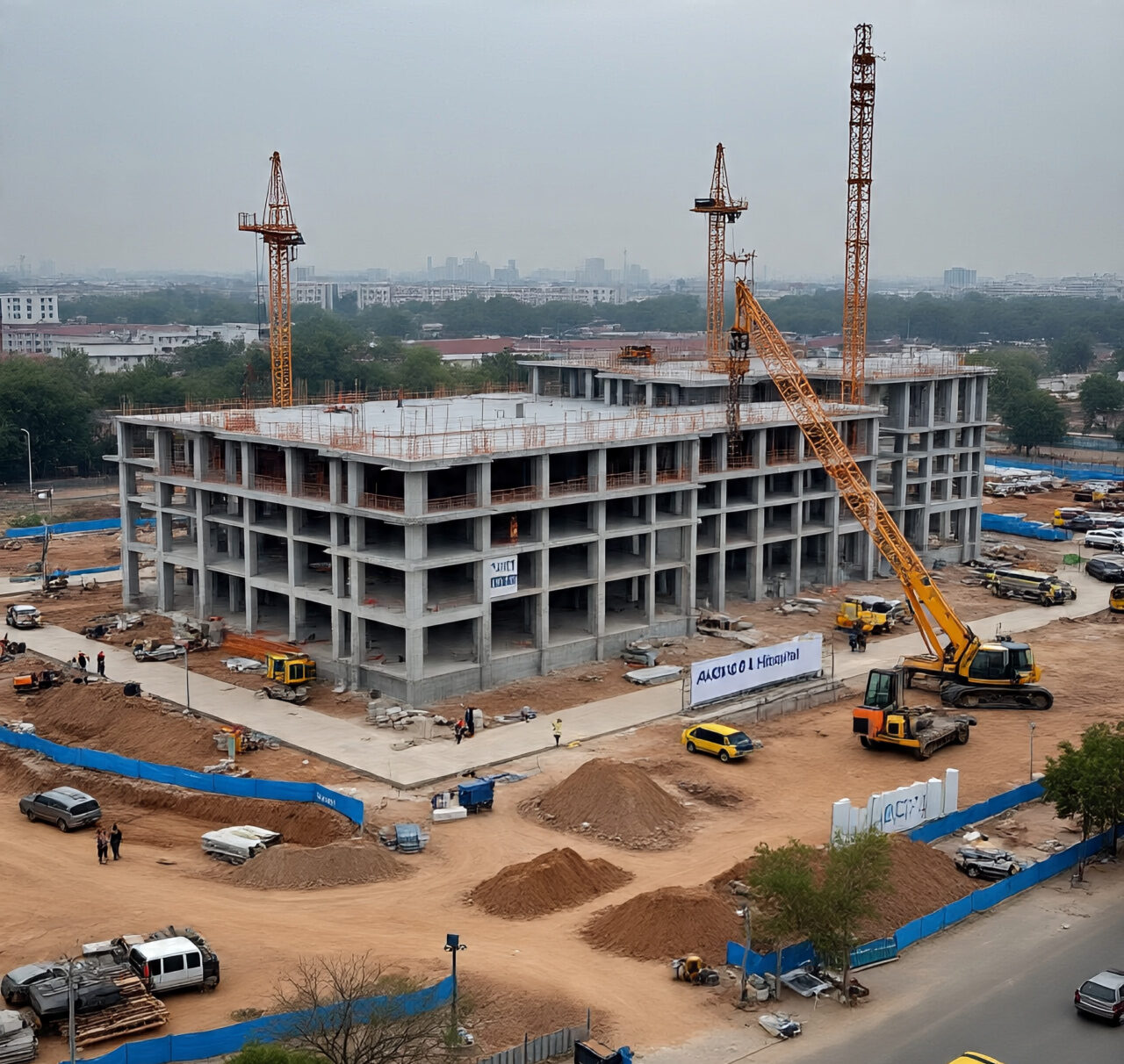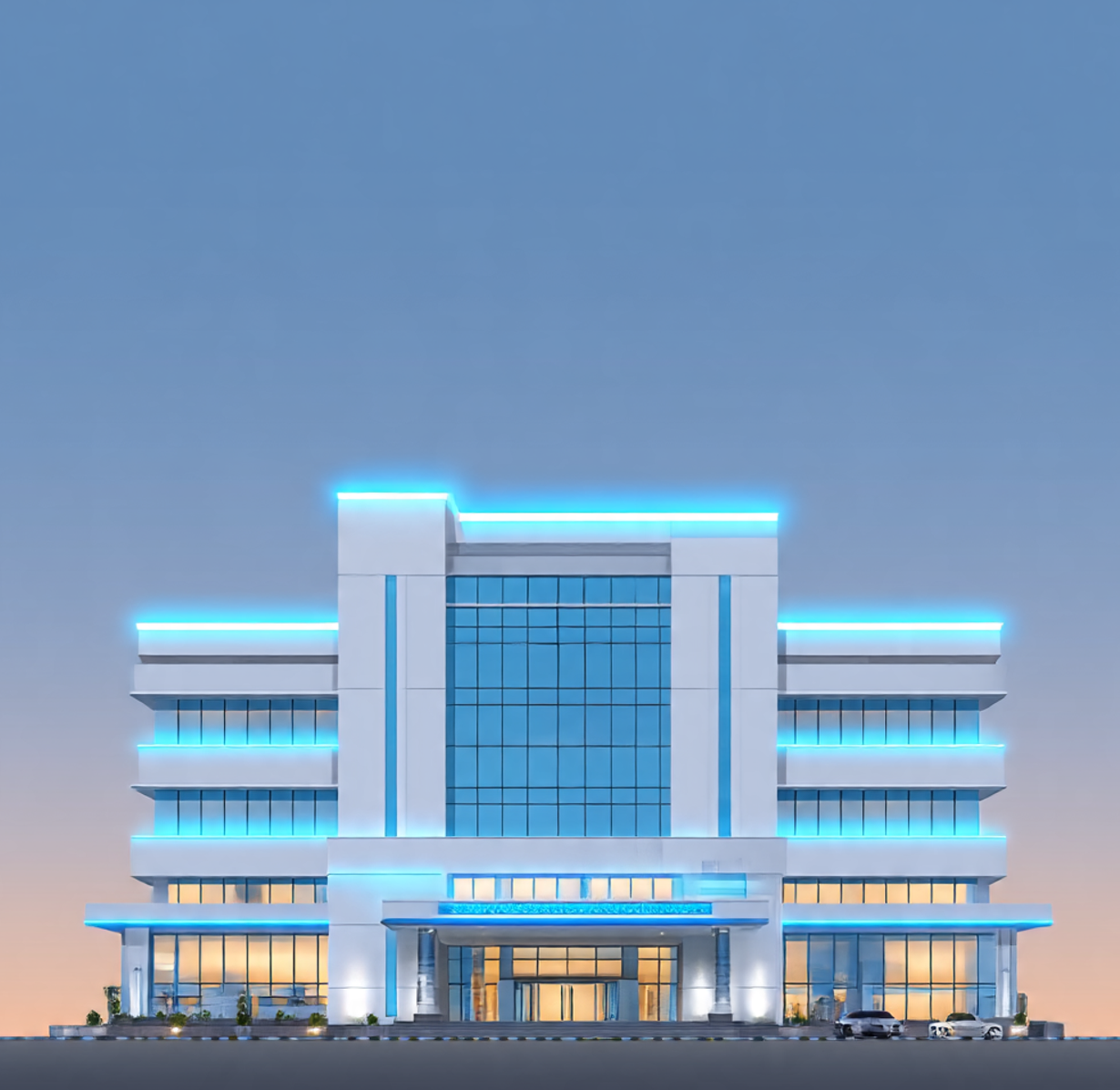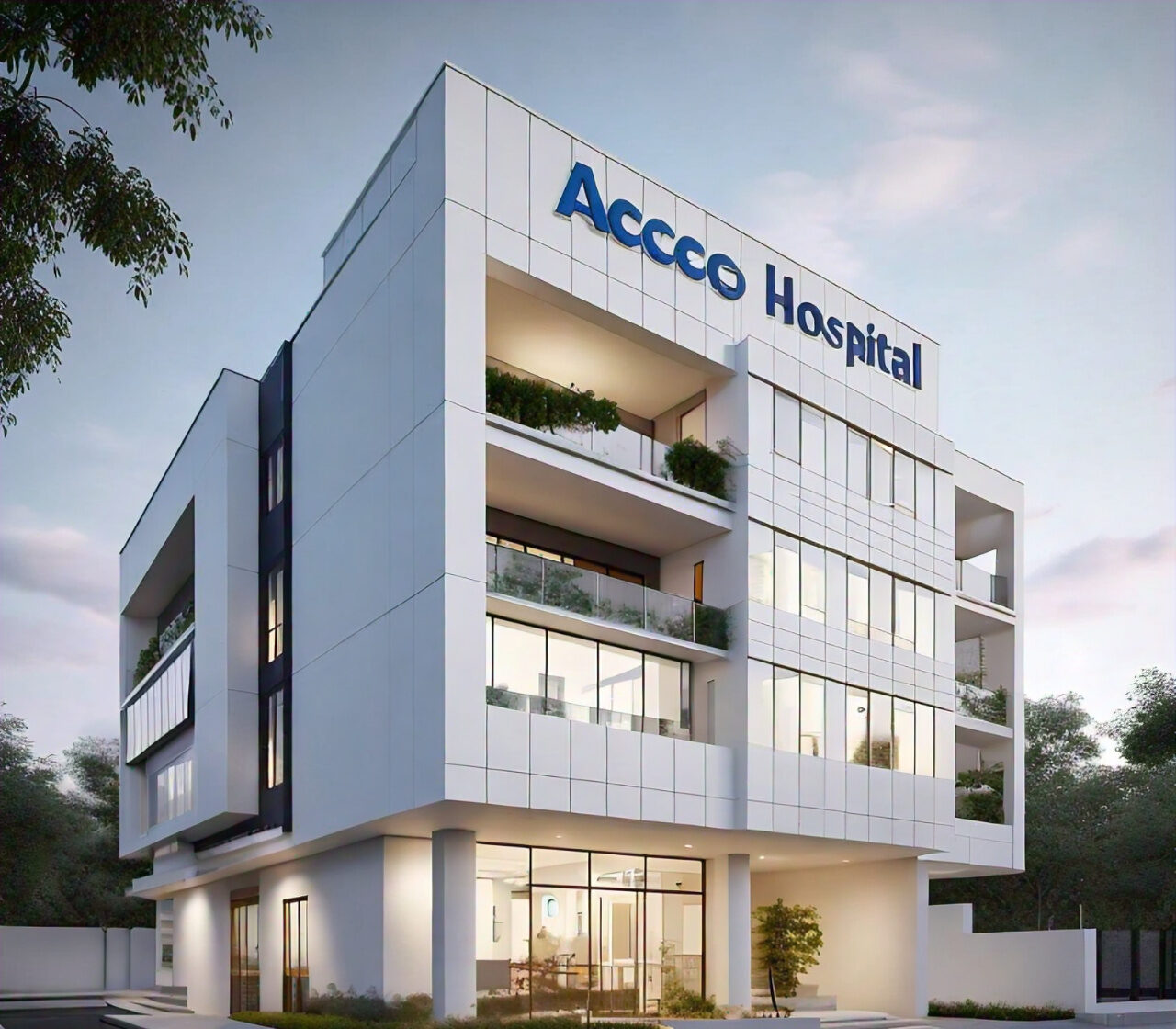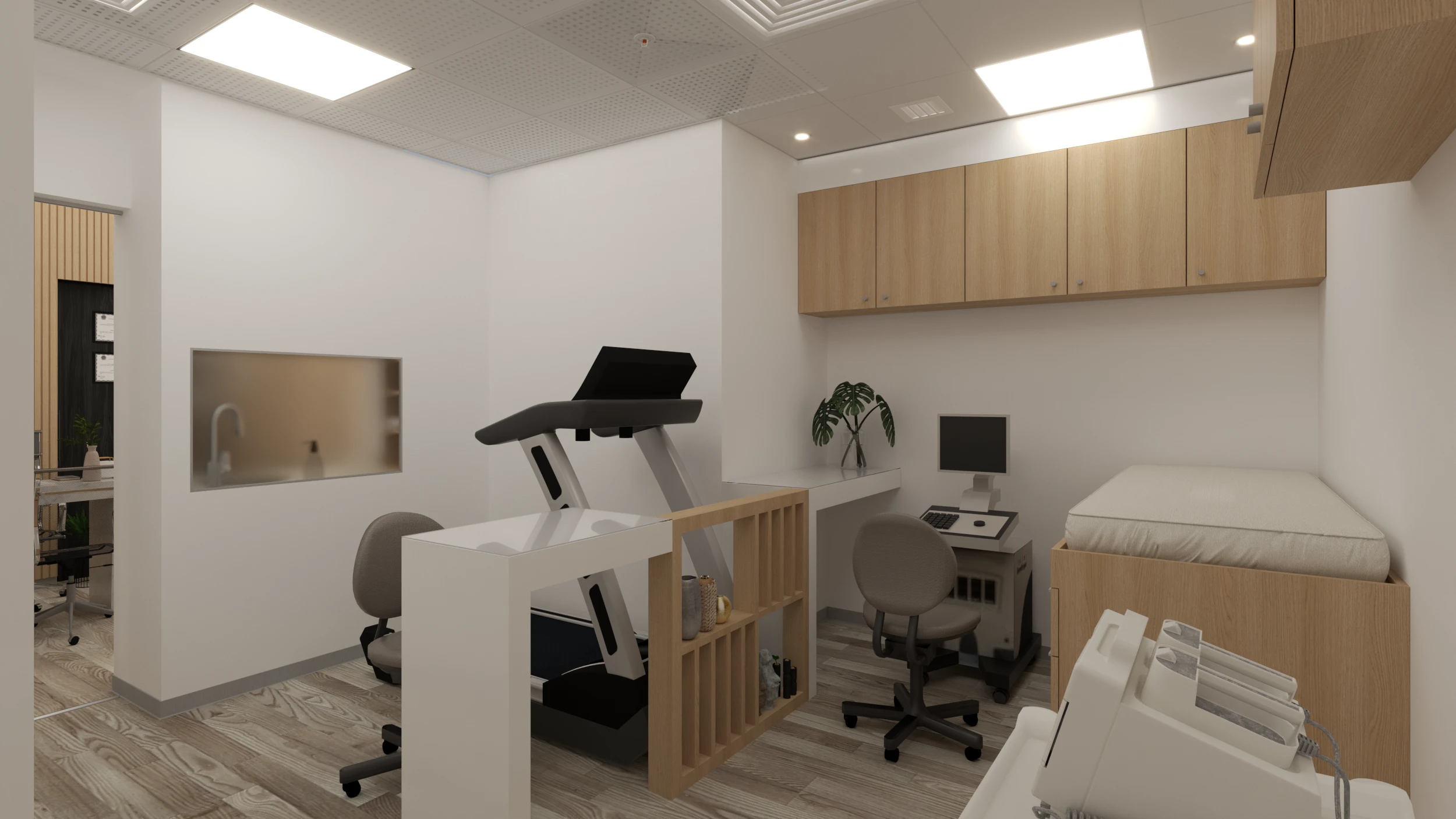
ACCO “Next-Generation Hospital Design in Pakistan: Modern Healthcare Facilities
| Heading | Sub-Headings |
|---|---|
| Introduction to ACCO Modern Healthcare Facilities | – The Importance of Modern Healthcare Infrastructure in Pakistan – ACCO’s Vision for Next-Generation Hospitals |
| The Evolution of Hospital Design | – From Traditional to Contemporary Healthcare Spaces – Technological Advancements in Hospital Design |
| ACCO’s Role in Pakistan’s Healthcare Transformation | – Setting New Standards in Hospital Architecture – Collaborations with International Healthcare Experts |
| Key Features of ACCO’s Modern Healthcare Facilities | – Patient-Centered Design – Sustainable Building Practices – Integration of Smart Technology – Efficient Space Utilization – Flexibility and Scalability in Design |
| Patient-Centered Design: A Core Principle | – Enhancing Patient Comfort and Experience – Incorporating Healing Environments – Privacy and Safety Measures |
| Sustainable Building Practices in Hospital Design | – Energy Efficiency and Green Technologies – Use of Eco-Friendly Materials – Long-Term Cost Benefits of Sustainable Design |
| The Integration of Smart Technology | – AI and IoT in Healthcare Facilities – Automation in Hospital Management – Telemedicine and Remote Patient Monitoring |
| Efficient Space Utilization in ACCO Hospitals | – Designing for Maximum Utility – Space Management in Emergency and Critical Care Units – Flexible Use of Shared Spaces |
| Flexibility and Scalability in Hospital Design | – Future-Proofing Healthcare Facilities – Adaptable Spaces for Evolving Needs – Expansion without Disruption |
| The Role of Architecture in Patient Outcomes | – Impact of Design on Recovery Rates – Reducing Patient Stress through Design – Architectural Strategies to Minimize Infections |
| Collaboration with International Experts | – Leveraging Global Expertise for Local Solutions – Case Studies of Successful Partnerships – Continuous Improvement through International Collaboration |
| Case Studies: ACCO’s Successful Hospital Projects | – Overview of Key Projects Across Pakistan – Innovative Design Elements in Each Project – Feedback from Healthcare Professionals and Patients |
| Challenges in Modern Hospital Design | – Navigating Regulatory Frameworks – Balancing Cost and Innovation – Ensuring Accessibility and Inclusivity |
| The Future of Hospital Design in Pakistan | – Emerging Trends and Technologies – The Growing Demand for Specialty Hospitals – The Role of ACCO in Shaping the Future |
| ACCO’s Commitment to Excellence | – Quality Assurance in Hospital Construction – Continuous Training and Development for Teams – Awards and Recognitions for Excellence in Design |
| The Economic Impact of Modern Healthcare Facilities | – Job Creation and Local Economic Growth – Attracting International Medical Tourism – Enhancing the Global Competitiveness of Pakistan’s Healthcare Sector |
| ACCO’s Approach to Sustainable Development | – Aligning with National and Global Sustainability Goals – Reducing Carbon Footprint in Construction – Social Responsibility Initiatives in Healthcare Development |
| Patient and Staff Well-being in Hospital Design | – Designing for Staff Efficiency and Satisfaction – Wellness Programs and Facilities for Staff – Creating a Positive Work Environment in Hospitals |
| The Role of Design in Healthcare Innovation | – How Architecture Drives Medical Innovation – The Intersection of Design and Clinical Care – Supporting Research and Development through Design |
| Bridging the Urban-Rural Divide in Healthcare | – ACCO’s Projects in Rural Areas – Overcoming Challenges in Remote Healthcare Infrastructure – The Impact of Rural Hospitals on Community Health |
| Public-Private Partnerships in Hospital Design | – Collaborative Approaches to Funding – The Role of Government in Supporting Modern Healthcare – Case Studies of Successful PPP Models |
| ACCO’s Vision for the Next Decade | – Long-Term Goals for Healthcare Infrastructure – Expanding the Reach of Modern Facilities – Innovations on the Horizon |
| Frequently Asked Questions | – What makes ACCO’s hospital designs unique? – How does ACCO ensure sustainability in its projects? – What are the key technologies used in ACCO’s hospitals? – How does ACCO address the needs of rural healthcare? – What are the benefits of patient-centered design in hospitals? – How does ACCO balance cost with innovation in hospital design? |
| Conclusion | – The Future of Healthcare Design with ACCO – Final Thoughts on Next-Generation Hospital Design in Pakistan |
Introduction to ACCO Modern Healthcare Facilities
In a rapidly evolving world where healthcare demands are growing exponentially, the importance of modern healthcare infrastructure cannot be overstated. Pakistan, a country with a burgeoning population and diverse healthcare needs, faces unique challenges in this regard. ACCO, a pioneer in innovative construction and design, is at the forefront of transforming the landscape of hospital design in Pakistan. With a vision rooted in enhancing patient care, sustainability, and technological integration, ACCO is setting new standards for next-generation hospital design in the region.
The Evolution of Hospital Design
Hospital design has come a long way from the traditional, sterile environments of the past. Today’s healthcare facilities are more than just buildings; they are carefully crafted spaces that promote healing, well-being, and efficiency. The shift from conventional to contemporary hospital design reflects the changing priorities in healthcare—where patient experience, technological advancement, and sustainable practices are paramount. ACCO has been instrumental in this evolution, bringing cutting-edge design and construction methodologies to Pakistan’s healthcare sector.
ACCO’s Role in Pakistan’s Healthcare Transformation
ACCO is not just building hospitals; it is redefining what hospitals can be. By setting new standards in hospital architecture, ACCO is addressing the multifaceted needs of modern healthcare providers and patients alike. Through collaborations with international healthcare experts, ACCO ensures that its projects are aligned with global best practices while being tailored to the local context. This commitment to excellence has positioned ACCO as a leader in Pakistan’s healthcare transformation.
Key Features of ACCO’s Modern Healthcare Facilities
ACCO’s approach to hospital design is characterized by several key features that distinguish its projects from conventional healthcare facilities. These include a patient-centered design that prioritizes the comfort and well-being of patients, sustainable building practices that reduce environmental impact, the integration of smart technology for enhanced operational efficiency, and efficient space utilization to maximize the functionality of each facility. Additionally, ACCO’s designs are flexible and scalable, allowing hospitals to adapt to changing needs and expand as required.
Patient-Centered Design: A Core Principle
One of the core principles guiding ACCO’s hospital design is a focus on patient-centered care. This approach emphasizes the importance of creating environments that enhance patient comfort and contribute to better health outcomes. From incorporating natural light and greenery to designing private, quiet spaces for rest and recovery, ACCO’s patient-centered design goes beyond aesthetics to address the psychological and emotional needs of patients. Privacy and safety are also paramount, with thoughtful design elements that protect patient confidentiality and reduce the risk of infections.
Sustainable Building Practices in Hospital Design
Sustainability is at the heart of ACCO’s hospital design philosophy. In an era where environmental concerns are increasingly critical, ACCO is committed to constructing healthcare facilities that are energy-efficient and environmentally friendly. This includes the use of green technologies such as solar power, rainwater harvesting, and energy-efficient HVAC systems. The choice of eco-friendly materials further reduces the carbon footprint of these buildings, ensuring that they are not only good for patients but also for the planet. Moreover, sustainable design often leads to long-term cost savings, making it a financially sound choice for healthcare providers.
The Integration of Smart Technology
In the digital age, technology plays a crucial role in healthcare. ACCO’s modern healthcare facilities are equipped with the latest smart technologies to enhance patient care and streamline hospital operations. Artificial intelligence (AI) and the Internet of Things (IoT) are seamlessly integrated into the hospital infrastructure, enabling everything from automated patient monitoring to predictive maintenance of medical equipment. Telemedicine is another key feature, allowing healthcare providers to extend their reach to remote areas and improve access to care. These innovations not only improve efficiency but also ensure that hospitals are prepared for the future.
Efficient Space Utilization in ACCO Hospitals
Space is a valuable resource in any hospital, and ACCO’s designs ensure that it is used to its maximum potential. Efficient space utilization is achieved through thoughtful layout planning, which considers the specific needs of different departments and the flow of patients, staff, and visitors. In critical areas such as emergency and intensive care units, space is optimized to allow for rapid response times and easy access to essential equipment. Shared spaces, such as waiting areas and lounges, are designed to be flexible, serving multiple purposes as needed. This approach not only enhances functionality but also creates a more comfortable environment for everyone involved.
Flexibility and Scalability in Hospital Design
One of the most significant challenges in hospital design is creating spaces that can adapt to future needs. ACCO addresses this by incorporating flexibility and scalability into its designs. This means that hospitals can be easily expanded or reconfigured as healthcare demands evolve, without the need for major renovations or disruptions to services. For example, modular designs allow for the quick addition of new wards or operating rooms, while flexible layouts enable departments to be re-purposed as required. This forward-thinking approach ensures that ACCO’s hospitals remain relevant and functional for decades to come.
The Role of Architecture in Patient Outcomes
There is a growing body of evidence that suggests hospital design can have a significant impact on patient outcomes. ACCO’s architectural strategies are informed by this research, with a focus on creating environments that promote healing and reduce stress. For instance, the use of natural materials, soothing colors, and artwork can create a calming atmosphere that helps patients recover more quickly. Similarly, noise reduction measures and the careful placement of rooms and corridors can minimize disturbances, contributing to better sleep and overall well-being. ACCO’s designs also incorporate features that reduce the risk of hospital-acquired infections, such as easily cleanable surfaces and well-ventilated spaces.
Collaboration with International Experts
ACCO’s success in modern hospital design is partly due to its collaborations with international experts in healthcare architecture and engineering. By leveraging global expertise, ACCO can bring the latest innovations and best practices to its projects in Pakistan. These partnerships often involve knowledge exchange, joint research, and the adaptation of international standards to local contexts. Successful collaborations have led to the creation of world-class healthcare facilities that meet the highest standards of safety, efficiency, and patient care. This commitment to continuous improvement ensures that ACCO remains at the cutting edge of hospital design.
Case Studies: ACCO’s Successful Hospital Projects
ACCO has an impressive portfolio of successful hospital projects across Pakistan, each showcasing its commitment to innovation and quality. These case studies highlight the unique design elements that make each project stand out, from state-of-the-art operating theaters to patient-friendly recovery wards. Feedback from healthcare professionals and patients alike has been overwhelmingly positive, with many praising the improved workflow, reduced stress levels, and enhanced patient outcomes made possible by ACCO’s designs. These projects serve as a testament to ACCO’s ability to deliver on its promise of next-generation healthcare facilities.
Challenges in Modern Hospital Design
Designing modern hospitals is not without its challenges. Navigating the regulatory frameworks in Pakistan can be complex, with various codes and standards that must be adhered to. Additionally, there is often a need to balance innovation with cost-effectiveness, ensuring that hospitals are both cutting-edge and financially viable. Accessibility and inclusivity are also critical considerations, as hospitals must be designed to accommodate patients of all abilities and backgrounds. ACCO tackles these challenges head-on, using its expertise to find solutions that meet both regulatory requirements and the needs of the healthcare community.
The Future of Hospital Design in Pakistan
The future of hospital design in Pakistan is bright, with emerging trends and technologies poised to transform the sector further. Specialty hospitals, focusing on areas such as cancer treatment, cardiology, and orthopedics, are becoming increasingly popular, driven by the growing demand for specialized care. ACCO is well-positioned to lead this trend, with its expertise in designing facilities that cater to specific medical needs. Additionally, the integration of advanced technologies, such as AI-driven diagnostics and robotic surgery, will continue to shape the future of hospital design. As healthcare needs evolve, ACCO will remain at the forefront, driving innovation and excellence in hospital construction.
ACCO’s Commitment to Excellence
ACCO’s commitment to excellence is evident in every aspect of its work. From the initial design phase to the final construction, ACCO ensures that each project meets the highest standards of quality and safety. Continuous training and development for its teams are a priority, ensuring that they are equipped with the latest knowledge and skills in hospital construction. ACCO’s dedication to quality has not gone unnoticed, with numerous awards and recognitions for its contributions to healthcare infrastructure in Pakistan. This unwavering focus on excellence positions ACCO as a leader in the field, trusted by healthcare providers and patients alike.
The Economic Impact of Modern Healthcare Facilities
Modern healthcare facilities have a significant economic impact, both locally and nationally. The construction of hospitals creates jobs and stimulates local economies, providing opportunities for a wide range of professionals, from architects and engineers to healthcare workers and support staff. Moreover, state-of-the-art hospitals attract international medical tourism, positioning Pakistan as a destination for high-quality, affordable healthcare. This not only generates revenue but also enhances the global competitiveness of the country’s healthcare sector. ACCO’s role in developing these facilities is crucial to driving economic growth and improving the overall health of the population.
ACCO’s Approach to Sustainable Development
Sustainable development is a cornerstone of ACCO’s approach to hospital design. By aligning its projects with national and global sustainability goals, ACCO ensures that its hospitals contribute positively to environmental conservation and social responsibility. Reducing the carbon footprint of construction and operation is a priority, with initiatives such as energy-efficient designs, waste reduction programs, and the use of renewable energy sources. ACCO also engages in social responsibility initiatives, such as building healthcare facilities in underserved areas and supporting community health programs. This holistic approach to sustainability ensures that ACCO’s hospitals are not only advanced but also ethical and responsible.
Patient and Staff Well-being in Hospital Design
The well-being of both patients and staff is a critical consideration in ACCO’s hospital designs. For patients, the design of the hospital environment can significantly impact their recovery, with features such as comfortable rooms, quiet spaces, and access to nature contributing to a positive experience. For staff, efficient and ergonomic workspaces, wellness programs, and recreational facilities are essential for maintaining high levels of job satisfaction and reducing burnout. ACCO’s designs prioritize the needs of both patients and staff, creating hospitals that are not only functional but also supportive and nurturing environments.
The Role of Design in Healthcare Innovation
Design plays a pivotal role in driving healthcare innovation. By creating spaces that support the latest medical technologies and practices, ACCO ensures that its hospitals are equipped to handle the demands of modern healthcare. The intersection of design and clinical care is where innovation truly flourishes, with architectural solutions that enhance the delivery of care, improve patient outcomes, and support research and development. ACCO’s commitment to innovative design is evident in its projects, which consistently push the boundaries of what is possible in hospital construction.
Bridging the Urban-Rural Divide in Healthcare
Access to quality healthcare is a major challenge in Pakistan, particularly in rural areas. ACCO is addressing this issue by developing modern healthcare facilities in remote and underserved regions. These projects face unique challenges, such as limited infrastructure and resources, but ACCO’s expertise and innovative solutions ensure that even the most isolated communities can benefit from advanced healthcare services. By bridging the urban-rural divide, ACCO is helping to improve the overall health of the nation and reduce disparities in healthcare access.
Public-Private Partnerships in Hospital Design
Public-private partnerships (PPPs) are an effective way to fund and develop modern healthcare facilities. ACCO has been involved in several successful PPP projects, collaborating with government agencies, private investors, and international organizations to build hospitals that meet the needs of the population. These partnerships enable the pooling of resources, expertise, and innovation, resulting in high-quality healthcare facilities that are financially sustainable. The role of government in supporting these initiatives is crucial, providing the necessary regulatory framework and incentives to attract private investment. ACCO’s experience with PPPs highlights the potential of these collaborations to transform Pakistan’s healthcare landscape.
ACCO’s Vision for the Next Decade
Looking ahead, ACCO has ambitious plans for the next decade. Its long-term goals include expanding the reach of modern healthcare facilities across Pakistan, particularly in underserved areas, and continuing to innovate in hospital design. ACCO is also exploring new technologies and construction methods that will further enhance the efficiency and sustainability of its projects. As the healthcare landscape evolves, ACCO is committed to staying at the forefront, delivering world-class facilities that meet the needs of future generations.
Frequently Asked Questions
What makes ACCO’s hospital designs unique?
ACCO’s hospital designs are unique due to their patient-centered approach, integration of smart technology, and commitment to sustainability. These features ensure that the hospitals are not only functional but also enhance the patient experience and reduce environmental impact.
How does ACCO ensure sustainability in its projects?
ACCO ensures sustainability through the use of green technologies, energy-efficient designs, and eco-friendly materials. Additionally, ACCO focuses on reducing the carbon footprint of its construction processes and implementing long-term sustainability strategies.
What are the key technologies used in ACCO’s hospitals?
ACCO’s hospitals incorporate advanced technologies such as AI, IoT, telemedicine, and automation systems. These technologies enhance patient care, streamline hospital operations, and ensure that the facilities are future-ready.
How does ACCO address the needs of rural healthcare?
ACCO addresses the needs of rural healthcare by developing modern facilities in remote areas, overcoming challenges such as limited infrastructure, and ensuring that even the most isolated communities have access to quality healthcare services.
What are the benefits of patient-centered design in hospitals?
Patient-centered design in hospitals enhances comfort, reduces stress, and promotes healing. It also improves privacy, safety, and overall patient satisfaction, leading to better health outcomes.
How does ACCO balance cost with innovation in hospital design?
ACCO balances cost with innovation by adopting cost-effective construction methods, using sustainable materials, and leveraging public-private partnerships. This approach ensures that hospitals are both advanced and financially viable.
Conclusion
ACCO is at the forefront of next-generation hospital design in Pakistan, setting new benchmarks for modern healthcare facilities. Through its innovative approach, ACCO is transforming the healthcare landscape, ensuring that patients receive the best possible care in environments that promote healing and well-being. As Pakistan’s healthcare needs continue to evolve, ACCO remains committed to leading the way with cutting-edge designs that are sustainable, flexible, and equipped for the future. The future of healthcare in Pakistan is bright, and ACCO is playing a crucial role in shaping it.




